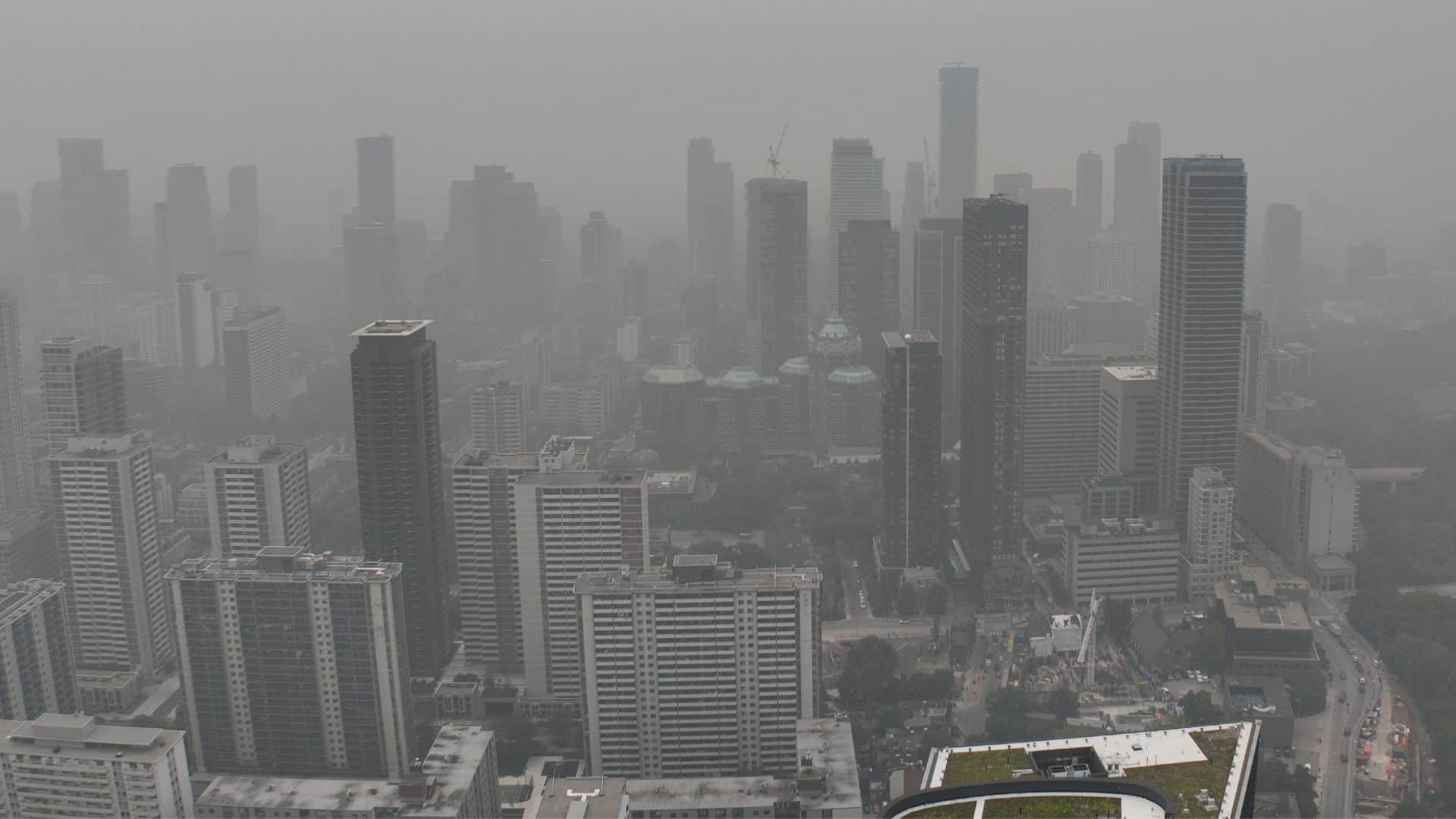There were 499 wildfires burning in Canada as of Thursday, 230 of them out of control.

Sleeping bags? Check. Flashlights? Check. N95s and air purifiers? Check.
Summer camp packing lists may look a little different this year as wildfire smoke and poor air quality means camps across affected sections of Canada and the U.S. are having to adjust everything from moving activities indoors and rerouting canoe trips to cancelling campfires and outdoor swimming.
There were 499 wildfires burning in Canada as of Thursday, and 230 of them were out of control, according to the most recent data from the Canadian Interagency Forest Fire Centre.
On Friday, the air quality-monitoring website IQAir said that as of 11 a.m., Toronto and Montreal ranked second and third for the worst air quality among major world cities, with New York City coming in first. Real-time data from the United Nations Environment Programme shows that the level of pollutants in the air in Montreal, Ottawa and Toronto is at least 10 times higher than recommended.
“It’s definitely something on our radar. There’s no question,” said Shauna Joyce, president of the Canadian Camping Association and the executive director of a summer camp in the Laurentians of Quebec.
“We’re communicating and reassuring that we do have measures in place and we can continue to deliver an engaging program. You know, it’s not going to favour outdoor activities as we had hoped, but that we can still continue to provide the service that we wanted to this summer.”

Danger from wildfire smoke could linger all summer, depending on the wind
The level of wildfire smoke blanketing Ontario, Quebec and the eastern United States is unprecedented. With Quebec’s fires potentially burning into the fall, the summer could hold more smoke events for millions.
Many of the procedures camps are following, such as moving activities inside or reducing the intensity of activities, are similar to those they already follow for heat waves and thunderstorms, Joyce said. The main difference is that they are paying special attention to children and staff with respiratory difficulties.
Joyce also runs a day camp in Montreal, where she says it’s been more challenging than her overnight camp due to strict measures about outdoor activities, such as swimming.

“Obviously the kids want to be outdoors and playing and appreciating nature, so I think we’re navigating that challenge with kids where I think they might not completely understand why we need to be inside or why we can’t go swimming,” she said.
“Those pieces are challenging but we’re adapting, as we all have for the past three years and continue to. It’s manageable right now.”
U.S. camps moving activities indoors
Smoke from the Canadian wildfires is affecting camp plans south of the border, too.
Many camps in the Midwest and the east have been moving activities indoors, seeking advice from medical professionals and hoping the air quality improves soon so campers can get back to hiking, playing tetherball and waging games of capture the flag.
“There’s certainly a concern, considering that we take children from the cities,” Mark Zides, chairman of the Pennsylvania Camp Association, said Thursday. “Coming up to the mountains for the summer is what summer camp is all about.”

Maggie Groce, one of the directors of the summer camp program at Tanglewood Nature Center in Elmira, N.Y., said kids were staying inside as the air quality level hit 183 — in the dangerous red zone.
“Ideally, we would love for them to be outside in nature, on the trails, so this has thrown a wrench on our plans,” she said.
Other common camp activities such as hiking and general running around have been called off. Groce said the older children understand, but it’s been harder for the younger ones — particularly with a blue sky and the sun out behind the haze.

Pivoting
The health and safety of campers and staff is always the top concern, Dave Newnham, president of the Ontario Camps Association, toldCBC News Network Thursday. He notes each camp is working with its local health authority, and while things may look different this year, it shouldn’t make camp less enjoyable.
“What’s important at camp is we’re outside, we’re together, we’re with others, we’re getting all the benefits that camp can provide, but we’re doing so in a way that’s mindful of this environment,” he said.
“That’s one thing that COVID, the pandemic, taught us, is that there are ways to do things differently but still be able to proceed with all the benefits of camping.”
Newnham’s advice to parents is to contact your local camp director about their specific safety protocols, their ability to provide ventilation, masking and personal protective equipment, and the availability of indoor spaces.
He notes every camp is in a different environment, and the conditions and weather will change.
But in general, he says, there will likely be modifications. Canoe trips are still possible, he said, but may be shorter, or on different routes, and may require protective gear. And campfires are likely to be a “no” with much of Ontario under the Restricted Fire Zone, Newnham said.
But Newnham notes that campfires are about more than the flame. They’re about the songs, games, skits and stories.
“All those sorts of things can happen without a physical fire.”
ABOUT THE AUTHOR

Senior writer and editor
Natalie Stechyson is a senior writer and editor at CBC News. She’s worked in newsrooms across the country in her 12+ years of journalism experience, including the Globe and Mail, Postmedia News, Calgary Herald and Brunswick News. Before joining CBC News, she was the Parents editor at HuffPost Canada, where she won a silver Canadian Online Publishing Award.
With files from the Associated Press and the Canadian Press
*****
Credit belongs to : www.cbc.ca
 Atin Ito First Filipino Community Newspaper in Ontario
Atin Ito First Filipino Community Newspaper in Ontario






